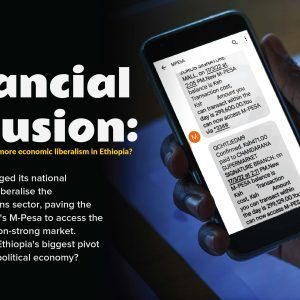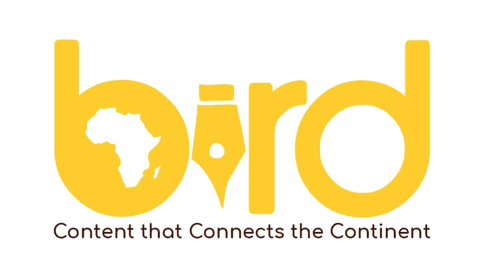Ethiopia has changed its national payments law to liberalise the telecommunications sector, paving the way for Safaricom's M-Pesa to access the country's 110 million-strong market. Could this signal Ethiopia's biggest pivot towards a liberal political economy?
Seth Onyango, bird story agency
Technology-based financial services are tipped to grow in Africa's second most populous nation as it opens up its telecommunications market to foreign investors.
It is a major policy shift that liberalises what was, until recently, one of the world’s last closed telecommunications markets.
Research company, Brookings Institute is upbeat that such policy shifts could inject Ethiopia’s neglected private sector with dynamism, thus energizing its traditional and state-dominated economy.
On May 22, 2021, the Ethiopian government announced it had issued a telecommunications license to the Global Partnership for Ethiopia.
The consortium is made up of Kenya’s Safaricom, Vodacom Group, Vodafone Group, Britain's CDC Group, Japan's Sumitomo Corporation, and the Development Finance Corporation. It will compete with state-run Ethio Telecom, which launched the country's first mobile money services in May 2021.
Safaricom's impact in Ethiopia
With seasoned players entering the market, experts expect more telecommunications innovations, internet penetration and financial inclusion in that market.
"This is a positive move not only towards a liberal economy but also paving the way for financial deepening," said Samuel Nyandemo, economist and senior lecturer in economics at the University of Nairobi.
Observers like Nyandemo are especially keen to see how the launch of mobile money behemoth, M-Pesa, impacts Ethiopia.
M-Pesa allows users to deposit, withdraw and transfer money, pay for goods and services and access credit and savings, all with a mobile device.
The service is therefore expected to disrupt more than just Ethiopia's telecommunications market; it is likely to profoundly impact its banking industry as well, with the potential to include millions of unbanked rural dwellers in the formal economy for the first time.
But all this depends on how much operating headroom it is allowed to have.
Telecommunications bids in Africa
According to a recent survey by the World Bank, the East African state ranks among the lowest countries in the world in terms of the use of digital financial services. Financial inclusion is relatively low, with only 35 per cent of the adult population having accounts at banks or other formal financial institutions, and below 5 per cent of the adult population has a mobile bank account.
One way Safaricom might use its new foothold, industry professionals say, is by partnering with existing banks to extend credit offerings to consumers, creating opportunities that might assuage the fears of both banks and the government.
This might also prevent a backlash from other operators. In 2017, such fears pushed a Kenyan lawmaker to propose breaking up Safaricom and M-Pesa.
M-Pesa is now also available in the Democratic Republic of Congo, Egypt, Uganda, Ghana, Lesotho, Mozambique, Tanzania and Afghanistan. Anyone with the latest M-Pesa app can transact from anywhere in the world.
MTN, which operates in 24 countries in Africa and the Middle East, put in a US$600 million bid for a license but lost to the Safaricom consortium, with a bid of US$850 million. It is unclear whether MTN will pursue a license in the country and if that would include a mobile payments option, should it do so.
New players in the market will face some hurdles, the top being the Ethiopian government's proclivity to shut down telecommunications services to stifle political dissent. A civil war in the Tigray region is another reason that the currently risk-averse MTN may stay out of the market.
Rights groups also hope that market liberalisation will not be used to mask human rights and information abuses in the Tigray region.
Reform efforts under Premier Abiy Ahmed, which included the release of prisoners and dropping of charges against opposition actors and activists were initially lauded but his leadership is under scrutiny over what many believe to be genocide in Tigray.
When it comes to financial inclusion, however, the presence of Safaricom, whose parent companies are South Africa’s Vodacom and Britain’s Vodafone, is likely to fuel positive competition in Ethiopia—and spur innovation.
In other markets it has managed to partner with banks, helping users obtain access to micro-loans and deposit and taking businesses through platforms like Mshwari.
MTN recently inked a partnership deal with Flutterwave to bring payment solutions in Cameroon, Côte d’Ivoire, Rwanda, Uganda and Zambia and provide cash transfers via MTN Mobile Money (MoMo), and could potentially introduce the same service in Ethiopia, should it enter the market.
Whether or not MTN enters the market, Ethiopia’s telecommunications industry will receive a massive boost to its infrastructure, including the 5G market and a stable internet will unlock the state's digital economy and fuel job creation.
Future outlook
A recent report by Endeavor, a global community of entrepreneurs, shows that there will be 3 million new jobs in Africa thanks to online marketplaces, by 2025.
That could grow to more than 44 million jobs by 2050 if Africa’s internet penetration reaches 75 per cent, the report said. As of December 2021, the penetration rate was 44 per cent, compared to a global average of 66 per cent. However, a number of initiatives are likely to deliver a significant boost to Africa's penetration rate.
"1.7M jobs expected in 2025 due to Google’s 1 billion US dollars investment to support digital transformation through new subsea cables between Europe and Africa leading to a multiplication of the continent’s network capacity by 20X," reads Endeavor's report in part.
bird story agency





